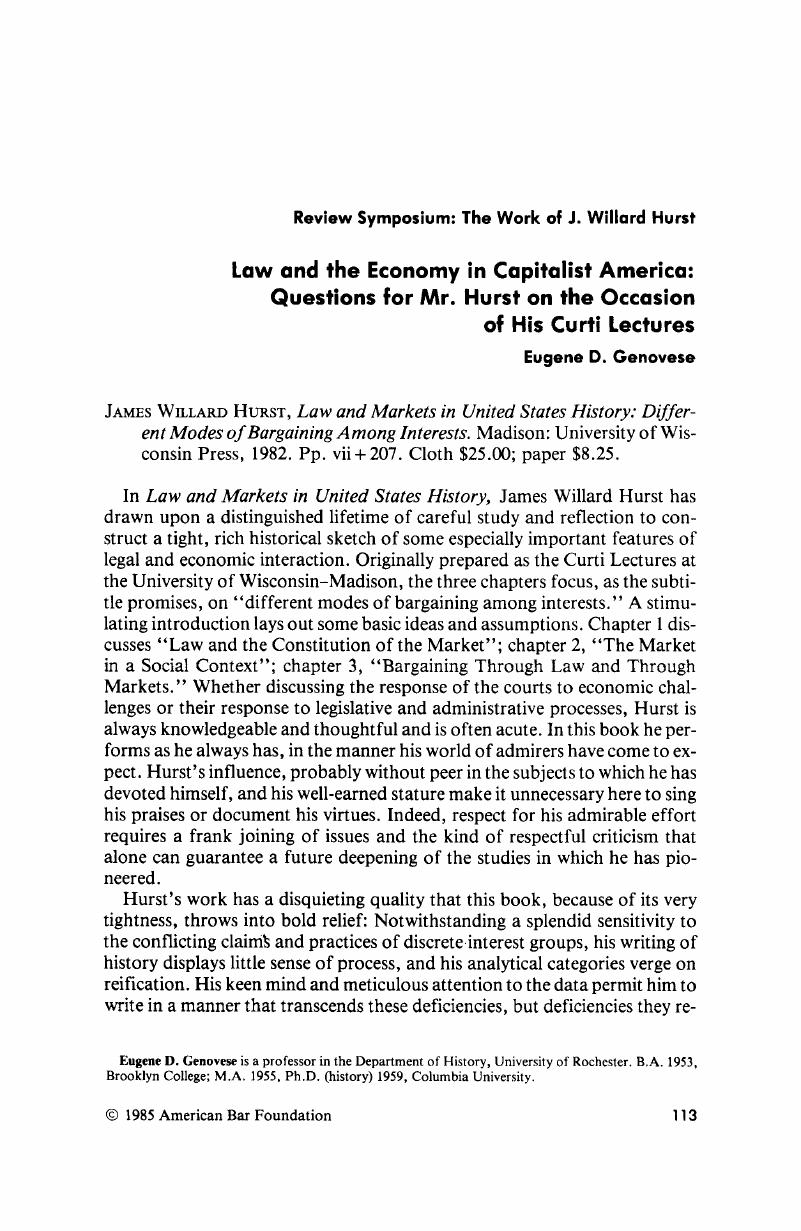No CrossRef data available.
Published online by Cambridge University Press: 20 November 2018

1 Hurst does claim a measure of autonomy for the law and does recognize the moral and social legitimacy that the law confers, although he does so much more clearly in Law and Social Order in the United States (Ithaca, N.Y., 1977) than in Law and Markets. I nonetheless believe that when the critical issues arise he falls back upon the reflective character of the law.Google Scholar
2 C. B. MacPherson, The Political Theory of Possessive Individualism: Hobbes to Locke (Oxford, 1962). For a correction, albeit one that is one-sided and needs some reverse correction, to the emphasis on Locke, see Garry Wills, Inventing America: Jefferson's Declaration of Independence (Garden City, N.Y., 1978).Google Scholar
3 See esp., Robert M. Cover, Justice Accused: Antislavery and the Judicial Process (New Haven, Conn., 1975); Thomas D. Morris, Free Men All: The Personal Liberty Laws of the North, 1780–1861 (Baltimore, 1974); Paul Finkelman, An Imperfect Union: Slavery, Federalism, and Comity (Chapel Hill, N.C., 1981). For a review of the issues posed in these and other books, see Elizabeth Fox-Genovese & Eugene D. Genovese, Fruits of Merchant Capital: Slavery and Bourgeois Property in the Rise and Expansion of Capitalism (New York, 1983).Google Scholar
4 For an elaboration of these remarks on the utopian strain in Marxist though, see Eugene D. Genovese, Introduction to the New Edition, in id., In Red and Black: Marxian Explorations in Southern and Afro-American History (2d ed. Knoxville, Tenn., 1984).Google Scholar
5 For a trenchant criticism of “the automobilization of America” and the larger problems of the socially irresponsible creation of demand, written from the point of view of a gifted conservative historian, see John Lukacs, Outgrowing Democracy: A History of the United States in the Twentieth Century (Garden City, N.Y., 1984).Google Scholar
6 Tushnet, Mark V., The American Law of Slavery, 1810–1860: Considerations of Humanity and Interest (Princeton, N. J., 1981).Google Scholar
7 On the “reconstituted peasantries” of the postemancipation Caribbean see Sidney W. Mintz, Caribbean Transformations (Chicago, 1974). The literature on Reconstruction is large and contentious. For the problems most relevant here I would suggest the forthcoming book by Gerald M. Jaynes of Yale University, which will discuss the labor problem brilliantly and in depth.Google Scholar